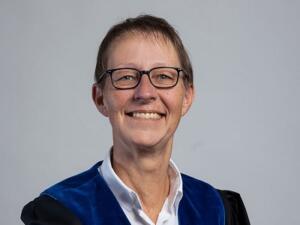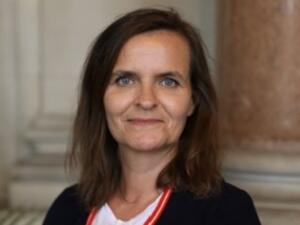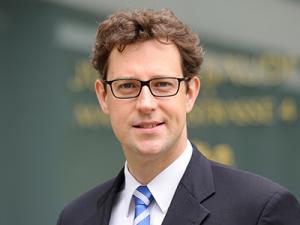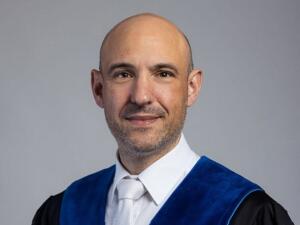Largest staff reshuffle since launch brings multiple new judges to UPC
A third panel for the UPC Court of Appeal has been planned for some time. The judges have now been appointed and hail from Germany, France and the Netherlands. Additionally, a German and a Swedish judge will join the court of first instance.
10 October 2025 by Mathieu Klos
The UPC announced in July that its Court of Appeal would gain another panel. The Administrative Committee approved three new judgeships for this purpose. The third panel will begin work on 1 January 2026.
The court announced the three judges today. As patent experts had recently speculated, Ulrike Voß is moving to the Court of Appeal. She currently serves as presiding judge at the court of first instance, dividing her time between the central division Munich and the 2nd panel at the local division Munich.
Renowned French judge Nathalie Sabotier joins as the second panel member. She currently sits at the French Cour de Cassation in Paris, where she has long served as a patent judge in the chamber of commerce, finance and economy. She moved there in September 2023 after five years at the Tribunal Judiciaire in Paris.
In her former role as first vice president and presiding judge at the 3rd chamber of the first instance court, which is responsible for IP, she gathered extensive experience in complex mobile communications disputes, such as Nokia vs Oppo, pharma cases such as Teva vs BMS and medical device cases such as Insulet vs Medtrum. Sabotier presided over the multi-party infringement proceedings in the Intellectual Ventures SEP case, one of the biggest patent battles in France.
Popular French judge
In a JUVE Patent survey in 2022, Sabotier was voted one of the most respected patent judges in France. Patent experts view her as open-minded and particularly well-informed about pan-European jurisprudence in patent cases. French patent attorneys particularly appreciated her transparency in the organisation and publication of judgments.
Furthermore, her role in the international patent scene was confirmed when the French government seconded Sabotier to the expert committee for the establishment of the UPC’s judicial structures. To many people’s astonishment, however, she was not among the judges selected for the UPC’s launch but now joins directly at Court of Appeal level.
- Ulrike Voß
- Nathalie Sabotier
- Bart van den Broek
The appointment of Bart van den Broek comes as a significant surprise. He is a partner in the Amsterdam office of Hoyng ROKH Monegier and one of the Netherlands’ most prominent patent litigators.
A competitor recently described him as an “extremely good patent litigator”. He has handled cases concerning life sciences, electronics and mobile communications, including for Regeneron, Netflix and Signify.
Litigator to judge
While the UPC does appoint patent litigators as judges, it has mainly selected judges from national patent courts.
However, in the Netherlands it is not unusual for lawyers to move from private practice to the judiciary. András Kupecz, a judge at the central division Munich, also previously worked in private practice. Klaas Bisschop had led the patent practice of Hogan Lovells in Amsterdam for many years before moving to the Court of Appeal in Amsterdam in 2022.
While Voss already works full-time for the UPC, JUVE Patent does not know whether Sabotier and van den Broek will join the UPC on a part-time or full-time basis.
Klaus Grabinski, president of the Court of Appeal, said, “Given the high workload at the Court of Appeal, I am happy to welcome a third panel. This will allow us not only to deal with the increased caseload of the CoA but will also add more flexibility in the composition of the different panels and the allocation of cases. I look forward to the collaboration with our new judges, who all have extensive experience in the field of patent litigation.”
Successor in Munich
Ulrike Voß’s move to the Court of Appeal means the court of first instance needs successors for both the central division Munich and the 2nd panel of the local division Munich. Officials have now confirmed these appointments.
From 1 January 2026, Daniel Severinsson will join the central division Munich. He currently serves as judge at the Patent and Market Court in Stockholm.
Georg Werner will join the local division Munich. JUVE Patent does not know whether either judge will work part-time or full-time at the UPC.
- Georg Werner
- Daniel Voß
- Daniel Severinsson
- András Kupecz
Werner currently presides over the 21st Civil Chamber at Munich Regional Court and recently attracted attention with an anti-interim licence injunction in InterDigital’s dispute against Amazon.
The next presiding judge
Ulrike Voß’s move affects the leadership of three panels. The court has apparently not yet decided who will chair the third panel at the Court of Appeal. Many consider Ulrike Voß the natural choice. With Klaus Grabinski presiding over the first panel, the appointment of Voß to presiding judge of the third panel would mean two German judges at the helm of the Court of Appeal. Rian Kalden heads the second panel.
Before joining the UPC, Voß served as presiding judge of a patent senate at the Higher Regional Court Düsseldorf. Following her promotion, questions arise about who will take over her previous presiding roles at the central and local divisions in Munich. Daniel Voß, widely regarded as one of the most renowned patent judges according to various JUVE Patent surveys, likely will become presiding judge of the second panel at the Munich local division.
András Kupecz from the Netherlands now moves into a more prominent position at the central division Munich. He has worked alongside Ulrike Voß here since the UPC’s launch and frequently serves as third judge in various local divisions.








